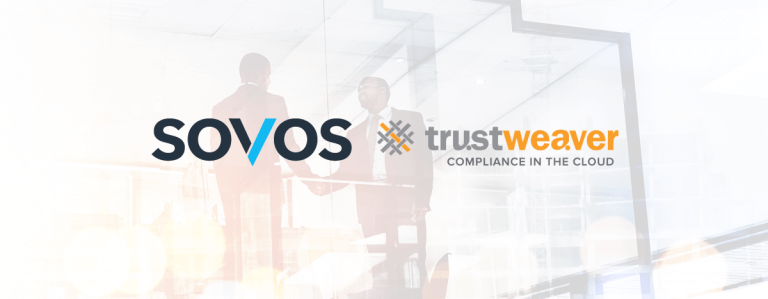Blog

Will Spain become the next EU country to follow in Italy’s footsteps by introducing a national mandate for business to business (B2B) e-invoicing? With the introduction of its e-invoicing mandate, Italy will become the first major EU country to acquire real-time information that will allow it to cross-check the VAT companies declare with the amount […]

As eInvoicing mandates sweep across Latin America, manufacturing is arguably the single most affected sector. With requirements impacting IT, finance, shipping, inventory management, inbound receiving and other business processes, eInvoicing greatly impacts the supply chain and manufacturers’ bottom lines. If not managed properly, eInvoicing could prevent trucks from distributing goods or force buyers to refuse […]

On the heels of revealing our S1 cloud platform to drive the modernization of tax software in the face of mounting digital disruption from businesses, financial systems providers and governments, as well as announcing support and an early adopter program for SAP S/4HANA cloud, we’re excited to also announce the following key appointments to our leadership […]

Costa Rica is one of the latest countries in Latin America to embrace electronic invoicing, and many companies doing business in the country are under pressure to find a service provider to help them comply with the country’s eInvoicing mandate. Manufactures and retailers are set to fall under the mandate in the next few months. […]

Companies dealing with complex sales and use tax determination, VAT regulations and other tax challenges across the globe know that SAP alone is not equipped to support the varying requirements from country to country. As SAP sunsets support and updates for ECC and R3, companies must move to HANA to keep their systems up to […]
After initially focusing on data and automation to gain visibility and ensure tax compliance in business-to-business transactions, many governments are now extending technology into business-to-consumer trade, requiring eReceipts. So, what’s the story behind eReceipts, and why do they matter? Here’s a quick tutorial to get you up to speed. What are eReceipts? eReceipts are the […]

The governments and tax administrations of South and Central America were among the first in the world to adopt ambitious programmes that mandate the use of e-invoicing based on ‘clearance’ and structured data files. Over the past ten years, we’ve seen them leapfrog the time-honored concepts of paper-based, post-audit processes to put in place entirely […]

Invoicing in Latin America has become complex to the point of being daunting. Businesses that get electronic invoicing processes wrong could quickly grind to a halt. Mastering the eInvoicing process is critical, then, and it involves making sure that all four elements of eInvoicing are working smoothly at the same time. New regulations, most notably […]

In order for businesses in Latin America to reduce their risks of fines, penalties and operational disruptions, it’s imperative to understand and manage the ever-changing eInvoicing and VAT reporting mandates sweeping throughout the region. While proactive compliance can improve operational efficiency, streamline processes and increase cash flow, many companies do not have strategic processes in […]

Italy will soon join Hungary in requiring real-time, transaction-level reporting. With the launch of the first phase imminent (1 July 2018), Italy’s tax authority recently released new information on its eInvoicing requirement. In February, the European Commission backed Italy’s request to implement mandatory eInvoicing. This clearance is a game-changer for businesses operating in the European […]

Ever since the Legge di Bilancio, the law introducing the Italian e-invoicing obligation for all domestic supplies was passed on 27 December 2017, discontented voices have raised an objection to its ambitious timeline. The original plan phases in the clearance-style mandatory e-invoicing process across the following key dates: 1st July 2018: For supplies of petrol […]

Companies looking to expand internationally or ones already doing business in multiple locations face a complex web of tax regulations and reforms, varying dramatically from country to country. Existing tax compliance systems and processes typically aren’t sufficient to manage these growing challenges, requiring multinationals to adopt a new, proactive approach to compliance to reduce risk […]

Since the first launch of eInvoicing mandates in Brazil 10 years ago, eInvoice adoption has now spread worldwide. Governments are implementing complex, real-time, transaction-level requirements to gain visibility into tax liabilities, close the tax gap and minimize corporate tax evasion. eInvoicing compliance is not a simple process for businesses – it requires a total shift […]

The floodgates may be opening. Following the EU’s approval of mandatory e-invoicing in Italy, it appears that Greece will be the next European Union member state to follow in its footsteps. As announced after the meeting of the intergovernmental group on 23 April 2018, the introduction of a nationwide mandatory e-invoicing framework will come into […]

Ask any business student what the secret to commercial success is and they’ll tell you it’s profit margin, not just sales volume. Therefore, to be good at selling things you have to excel at buying them. Usually, companies have a strong incentive to tightly manage what’s called ‘direct supplies.’ These are the raw materials and […]
By Andy Hovancik – President & CEO Today, we announced the acquisition of Stockholm-based TrustWeaver to create a clear leader in modern tax software. TrustWeaver has become a seal of approval for the world’s largest procure-to-pay and AP systems. This is a testament not only to the effectiveness of its e-invoicing software and integrations, but […]
Hoje nós anunciamos a aquisição da empresa sueca TrustWeaver para criar uma clara liderança na nova era de software fiscal – e expandir nossa cobertura de e-Invoicing (faturação eletrônica) a 60 países em seis continentes. Nós estamos assistindo à faturação eletrônica espalhar-se por todos os continentes, adicionando complexidade e risco ao seu processo financeiro e […]

Hoy, anunciamos la adquisición de TrustWeaver con sede en Estocolmo, para crear un claro líder en software impositivo moderno – y expandir nuestra cobertura de facturación electrónica a 60 países en 6 continentes. Hemos visto el cumplimiento de facturación electrónica expandirse a cada continente, agregando complejidad y riesgo a tus procesos financieros claves. TrustWeaver se […]